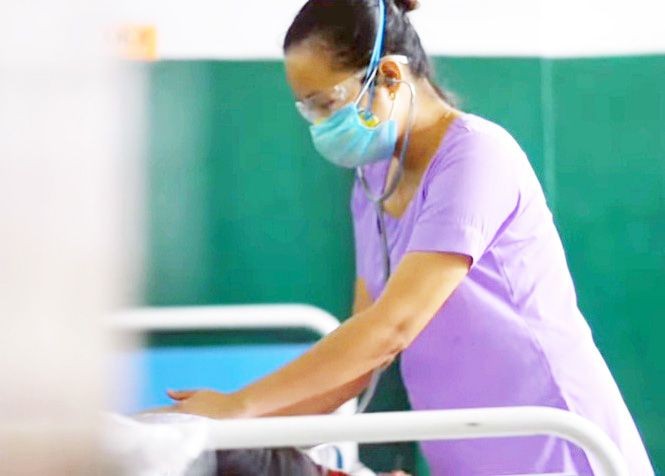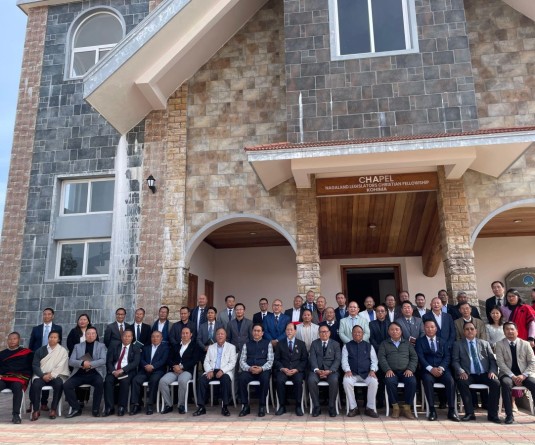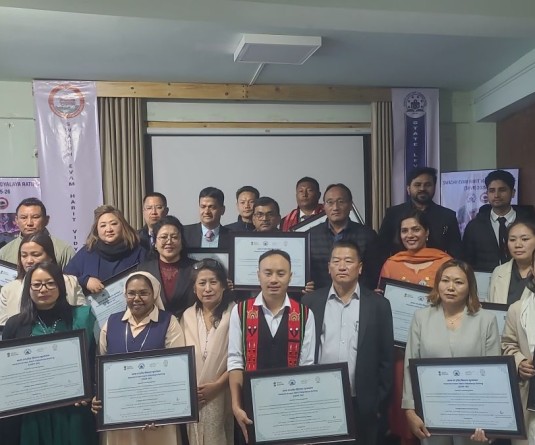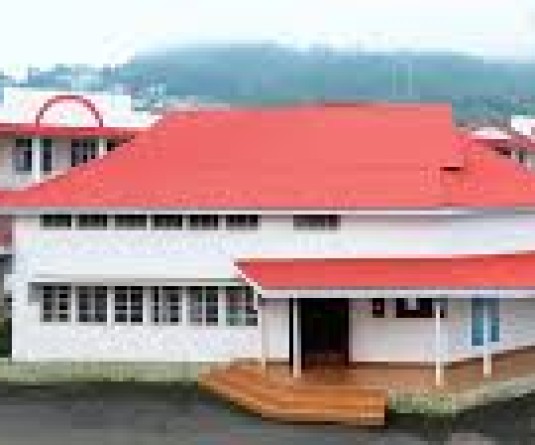In this screengrab from a video in the Deputy Commissioner Mon’s YouTube channel, a health worker is seen on duty in one of the health care facilities in Mon district.

Health workers reflect (Part-II)
Atono Tsükrü Kense
Kohima | March 28
At the height of the COVID-19 pandemic-an unprecedented public health emergency, physicians, nurses and other health workers across the state were working round the clock under immense pressure.
As COVID-19 positive cases continued to rise and returnees started coming in thousands, there were instances where health workers broke down in tears, exhausted in the line of duty, and some were even ready to quit.
Initially, there were situations where health workers were not provided with protective gears as a doctor during an interview with The Morung Express at the peak of the pandemic said, “We are in the battlefield without shields and weapons. Now, we can only pray to God that we don’t contract the virus because now is not the time for us to say ‘I won’t go to work’. Now is the time for us to jump in and fight.”
Despite these challenges, they continued to remain steadfast on their allegiance “to give the best to serve the people.”
‘It was never an easy job’
Dr Methna Konyak, Medical Officer PHC Tizit, Mon, a newly married man at the time of the pandemic, said, “Fresh back from my wedding, I had to join the duty to fight against this unheard-of disease.”
Even as a doctor, Dr Konyak said he was a little anxious as it was a new thing and that “the paradigm shift in social interaction and laid protocols were hard to follow even for the medicos. In short, the world was not ready for this event.”
Recounting his experience, he said, “Some of the hardest times were screening of returnees, quarantine time and testing. Dealing with the quarantine inmates was never an easy job. The psychological effect that they might have during the quarantine stay was what worried me the most.”
He also shared the unpleasant experience of wearing PPE suits. “Hours of wearing PPE suit were something new to me and the summer heat didn’t help either. Blurred vision, headache and even vomiting were some signs of dehydration that we experienced in our PPE suits.”
Dr Konyak said three of his teammates had episodes of nausea on a few occasions.
“Besides many issues, social stigma was one thing that medical teams had to bear along with the quarantine inmates,” said Dr Konyak, citing instances where some of his staff had to vacate their rented house just because the owner did not feel safe.
One of the greatest lessons he learnt was that “humans are stronger as a community” and that he has learnt to appreciate every day as a gift. He also expressed hope that “our state and nation as a whole will be well equipped for any large scale medical emergencies like today.”
Blessing in disguise
Dr Holiba Anar from Kiphire District Hospital said that, like everyone else, he was worried and apprehensive.
“However, I prepared myself mentally to face any eventuality,” said Dr Anar, and as the Health Department was initially not well prepared and equipped to face the new disease, the onus was on his team to mobilize the leaders, which was a herculean task.
“When the returnees started reaching our town, the public villagers did not want to accommodate them. The sad part was, even after completion of official institutional quarantine, they were still reluctant to take them,” he recalled.
He mentioned an incident of regret how a returnee had to stay in the village quarantine for 28 days as his relatives refused to accommodate even after completing the institutional quarantine period.
Even though the district was fortunate to have less serious COVID positive cases, there were other ailments, and due to shortage of workforce, Dr Anar recalled how he had to manage 24x7 for a week along with two nurses as there was one ALD (Alcoholic Liver Disease) patient with GIT bleeding and one hypertensive patient.
In spite of all that, he said, “the pandemic was a blessing in disguise for us because many infrastructural developments have been taken up, including deployment of manpower in the health centres.”
“We were all praying for early breakthrough either through vaccine or drugs, but when the government launched the vaccine, there were lots of rumors/myths and apprehension over it resulting in poor response to the vaccination programme. This shows how little our faith is,” he expressed with regret.
“Nagas in general are good hearers but fewer doers. Unless we read the Bible daily and practice in our daily life, the word ‘change’ will take time,” said Dr Anar.
Community building
Like everyone else, Dr John S from Tuensang District Hospital opined that “COVID-19 is something which we have never experienced. Initially, we were also very scared as we did not know the nature of the virus.”
Dr John, who served as nodal officer of the district, said the stigma and discrimination associated with the virus were quite hard to deal with as people were either too scared or ignorant to differentiate between the facts and myths.
Nonetheless, he said one lesson he learnt out of this pandemic is the need to have a strong public health care system in place with strong surveillance.
Another good thing he had observed during the past year was the overwhelming continuous support and cooperation of the civil society, including tribal bodies, NGOs, Churches etc., particularly when the returnees came home in groups.
“Their contributions were very helpful and through their help and support, we have been able to manage through one of the most difficult times. The government alone fighting this would be a disaster,” said Dr John.
He maintained that the strong social and community bonding of the Naga people needs to be strengthened.
The doctors also appreciated all other frontline workers, including the district administration, Police, NGOs etc., for their collective support and cooperation in the fight against COVID-19.
“The physical and psychological burdens that I experienced were still bearable since we worked as a team. I would cherish every moment that I had with my co-workers. They are the best,” said Dr Konyak.






